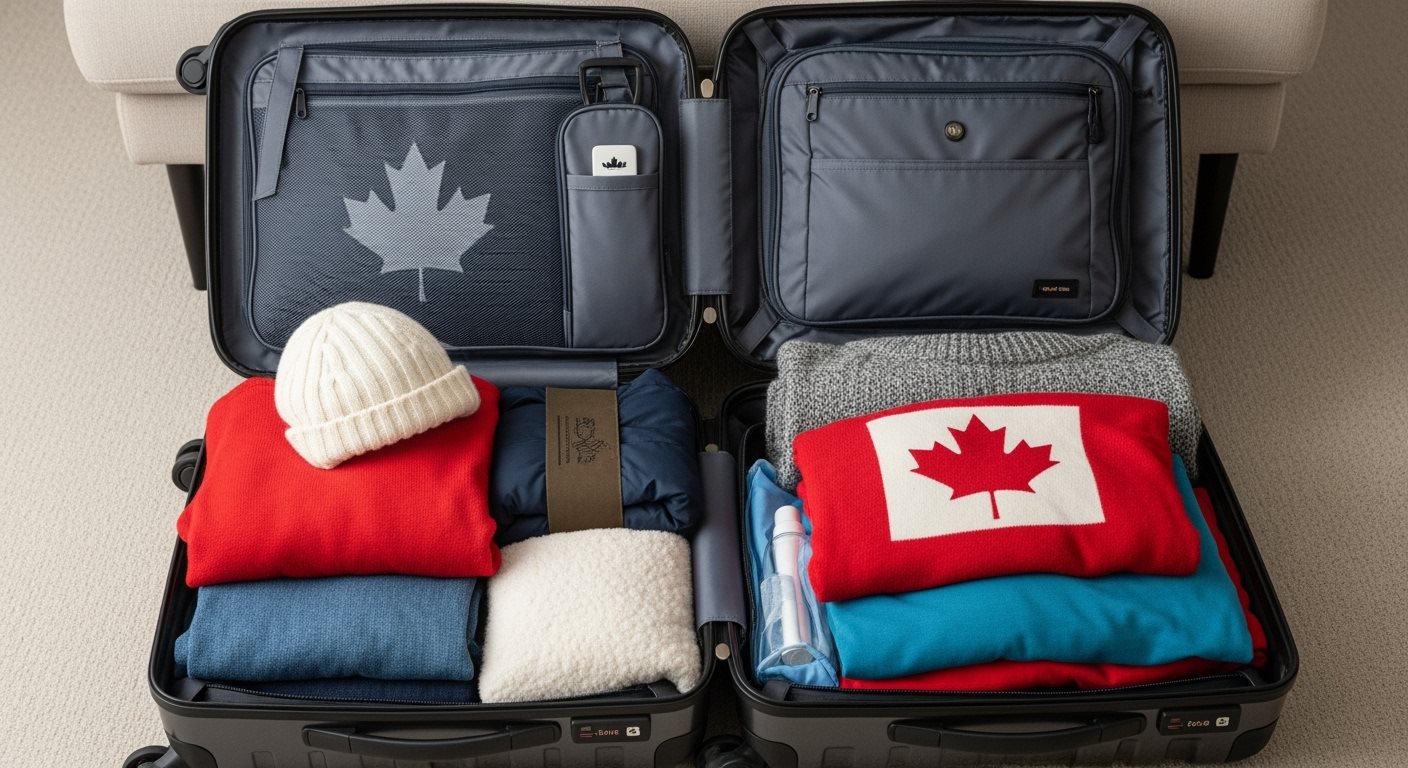**Packing for Canada** requires careful consideration of the country's **diverse climate zones, seasonal variations**, and the wide range of activities available to travelers. From the temperate coastal regions of British Columbia to the **arctic conditions of the northern territories**, Canada's weather can vary dramatically depending on your destination and time of visit.
Whether you're planning a **summer hiking adventure** in the Rocky Mountains, a **winter ski trip in Whistler**, or a cultural exploration of Quebec City, having the **right gear and clothing** can make the difference between a memorable trip and an uncomfortable experience.

Seasonal Clothing: Dressing for Canada's Climate
Canada's climate demands a **layered approach to clothing**, regardless of the season. During **summer months (June to August)**, pack lightweight, breathable fabrics for warm days, but always include a warm jacket or fleece for cool evenings and air-conditioned spaces.
**Long pants and closed-toe shoes** are essential for hiking and protection against insects. For **spring and fall visits**, focus on versatile pieces that can be layered: thermal underwear, fleece or wool sweaters, **waterproof outer shells**, and comfortable walking boots with good traction.
**Winter travel in Canada** requires serious **cold-weather preparation**. A **high-quality, insulated winter coat** rated for temperatures well below freezing is non-negotiable. Pack thermal base layers, wool or synthetic insulating layers, waterproof outer shells, **insulated boots with excellent traction**, warm hats that cover your ears, insulated gloves or mittens, and wool socks.
Don't forget accessories like **scarves, hand and foot warmers**, and **sunglasses for bright, snowy conditions**. Many hotels and rental properties provide extra blankets, but having your own warm sleepwear ensures comfort.
Technology and Electronics for the Modern Traveler
Canada uses **Type A and Type B electrical outlets** (the same as the United States), so travelers from most countries will need **plug adapters**. The standard voltage is **120V at 60Hz**. Bring a universal adapter if you're unsure, and consider a **power strip with USB ports** to charge multiple devices simultaneously.
A **portable power bank** is invaluable for long days of sightseeing, especially during winter when **cold temperatures can drain battery life** more quickly. Download **offline maps and translation apps** before your trip, as cellular coverage can be spotty in remote areas.
For **photography enthusiasts**, Canada offers incredible opportunities, so ensure you have **adequate memory cards and backup storage**. **Cold weather can affect camera performance**, so keep batteries warm and allow equipment to acclimate gradually when moving between temperature extremes.
A **waterproof camera case or bag** is essential for activities near water or in snowy conditions. Consider bringing a **small tripod for landscape photography and northern lights viewing**, particularly if you're visiting during aurora season in northern regions.
Health, Safety, and Practical Considerations
A **well-stocked first aid kit** is essential for any Canadian adventure, especially if you plan to explore remote areas or engage in **outdoor activities**. Include bandages, antiseptic wipes, pain relievers, any **prescription medications** (with extra supplies), insect repellent, **sunscreen** (crucial year-round due to snow reflection), and lip balm with SPF protection.
If you have specific medical conditions, bring a **letter from your doctor** explaining your condition and medications, particularly if you're carrying **prescription drugs across the border**.
Don't forget **practical items** that can enhance your travel experience: a **reusable water bottle** (many Canadian cities have excellent tap water), snacks for long travel days, a **small daypack for excursions**, waterproof bags for electronics and important documents, and a travel umbrella.
**Canadian currency (cash)** is still useful for small purchases, tips, and in areas where card payments aren't accepted. Finally, ensure you have **comprehensive travel insurance** that covers medical emergencies, trip cancellation, and any adventure activities you plan to undertake, as **healthcare costs for visitors** can be substantial.
